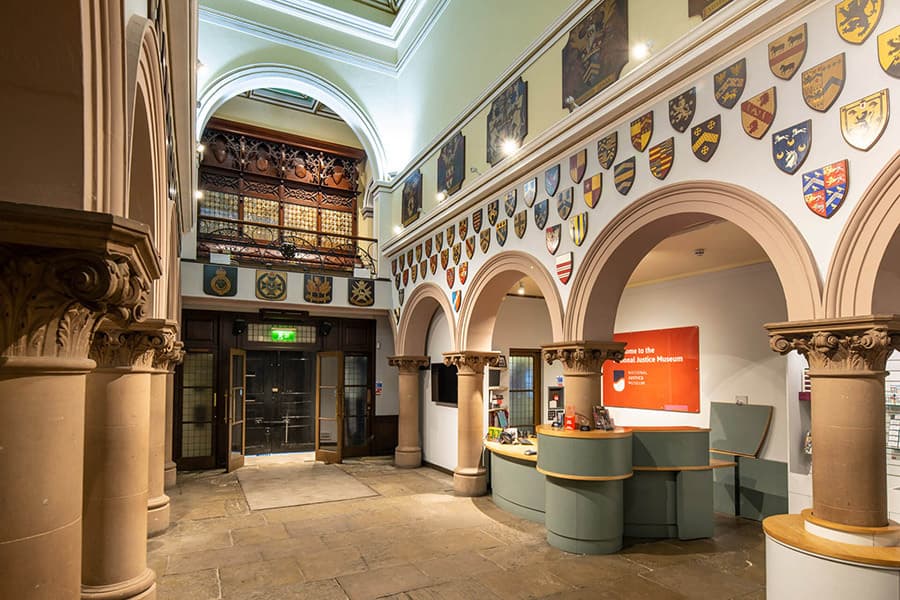Latst News and Blog
The History of Borstals in England - Part 2 - Farming and Agriculture
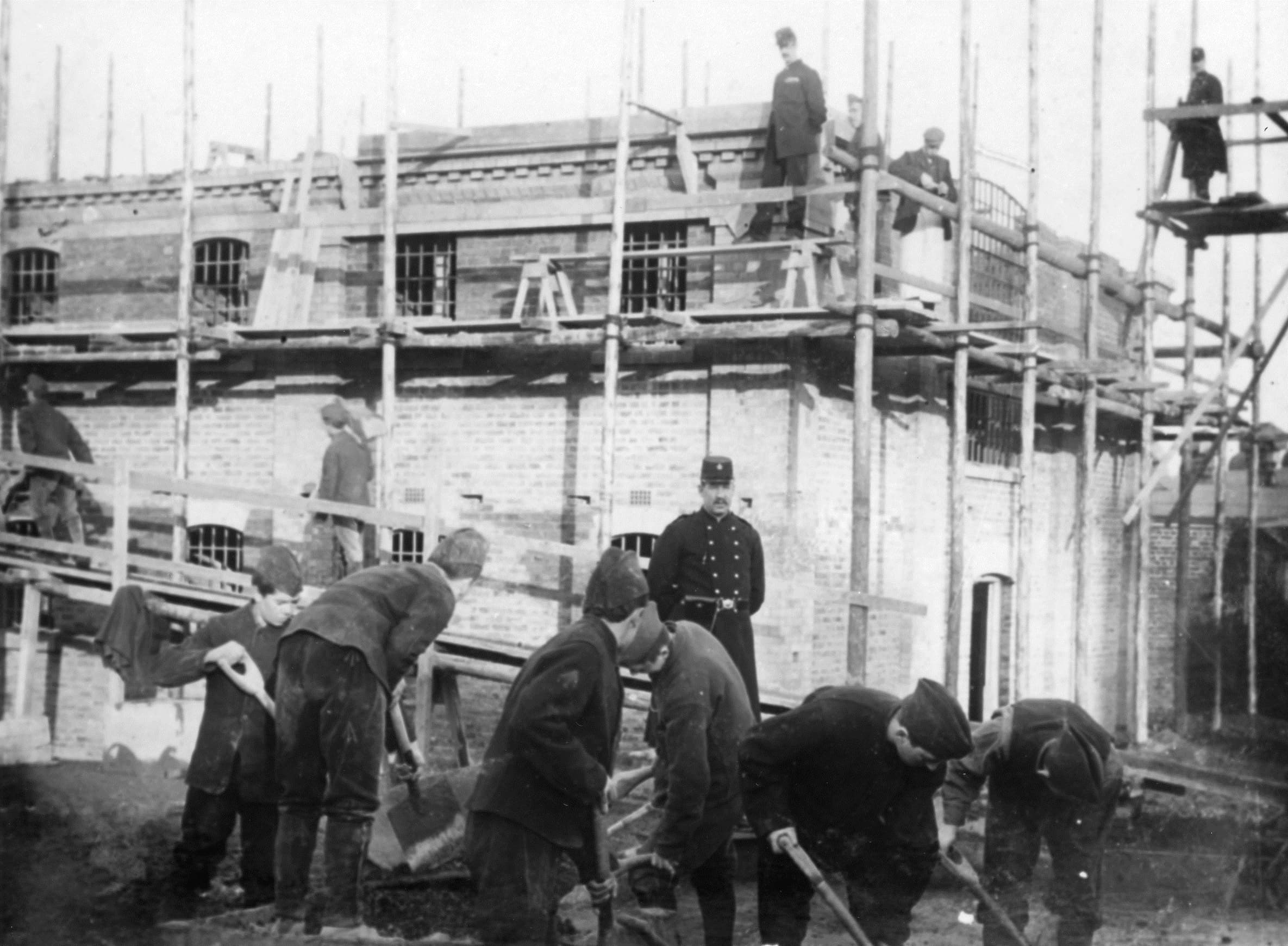
02/09/2024
Dan Ewers is a PhD researcher based at the University of Leeds. During 2023 he explored the archives held at the National Justice Museum researching the history of borstal institutions in the United Kingdom. Over the next few months we will be sharing what Dan found out about health, wellbeing, and everyday life within borstal institutions.
Today, Dan’s research focuses on the role of land reclamation, gardening, and farming in borstal institutions.
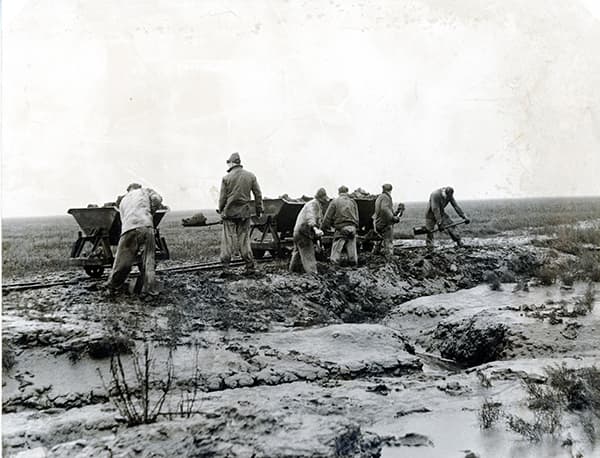
Land Reclamation at North Sea Camp Borstal, c.1950s.
Land reclamation often formed a crucial aspect of the day to day operation of several open borstals. Juveniles worked on the land surrounding the site, often converting it for use as farmland which would provide a source of food and income for the borstal. For example, when North Sea Camp borstal, Lincolnshire, was established in 1935, the boys were tasked with reclaiming the marshland that surrounded the site near Freiston, working all year round and in all weathers. According to Ex-Housemaster Murray Dickson in his account of life at North Sea Camp, the marshland was converted into usable farmland by the boys, and initially used to grow potatoes until the salt could be washed out of the soil.
A similar emphasis on land reclamation was evident at Usk and Prescoed Camp where a large part of the day-to-day work provided for borstal boys consisted of forest reclamation work. Working outside was an essential feature of the operation of many open borstal institutions: the hard work of land reclamation and the natural setting of the outdoors was believed to have a reforming effect on the juveniles.
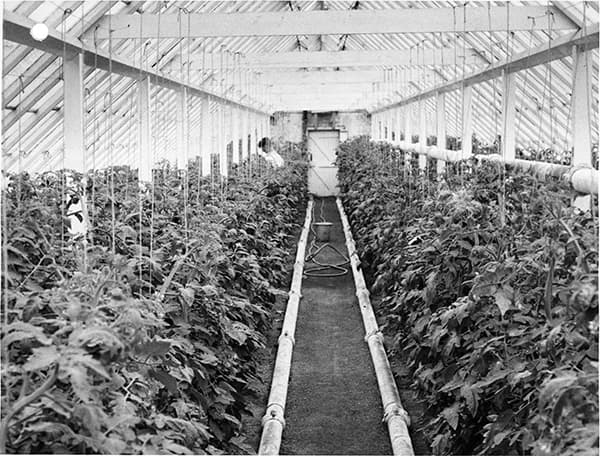
Tomato Plant Growing at Hollesley Bay Colony, June 1960.
Many borstal sites featured both ornamental and allotment gardens as well as enclosed greenhouses and nurseries for growing plants on site. These were usually tended by the juveniles and provided fruits and vegetables for consumption within the borstal itself or for sale as a means of generating income. Food production became a pressing issue during the Second World War and, as part of the ‘Dig for Victory’ Campaign in the UK, many institutions in the Prison Service repurposed their surrounding land to allow for the cultivation of food to assist with the wider war effort.
Several borstals (both male and female) also operated an on-site farm, with records showing the rearing of cows, sheep, horses, and pigs. At Lowdham Grange, Governor W. W. Llewellin even described how, when pursuing ‘outdoor hobbies’, some of the juveniles cared for rabbits, pigeons, and ducks during their time in his open borstal institution.

Pig Farming at East Sutton Park Borstal for Girls, c.1960s.
The juveniles were given instruction in farming methods by staff members as part of borstal training, intended to prepare them for working life upon their release . This could also include travelling to assist local farmers with their day-to-day work, looking after both animals and farmland often in exchange for a small payment. For example, at Lowdham Grange Borstal in Nottinghamshire, a daily working party went out to assist local farmers, with the lads travelling to and from the farm sites by bicycle.
Being involved with the broader community also appears to have brought new relationships and new experiences to those living within open borstals. According to a series of annual reports held in the National Justice Museum’s archive, Gaynes Hall Borstal ran a well-supported Young Farmer’s Club, which tended to the local farmland whilst also offering the borstal boys a more social platform for building relationships with one another. The Gaynes Hall Young Farmer’s Club was also reportedly involved in local competitions, including general knowledge quizzes and competing in the 1953 senior public speaking contest at the Huntingdonshire Federation of Young Farmer’s Clubs (Bedfordshire Times and Independent, 6 March, 1953).
Food production in prisons and Young Offenders Institutions continues to be a hotly discussed issue. Advocacy groups and academic studies have pointed to the positive benefits of horticulture, farming, and gardening on the health and wellbeing of people in prisons and Young Offenders Institutions. The activities provide not only nutrient rich produce for eating but also the opportunity to foster relationships between each other, with members of staff, and with the surrounding natural environment.
~
This research has been produced as the result of a 4-month REP placement at the National Justice Museum. Many thanks go to The National Justice Museum and the White Rose College of the Arts and Humanities for their support throughout this project.
OTHER NEWS AND BLOGS
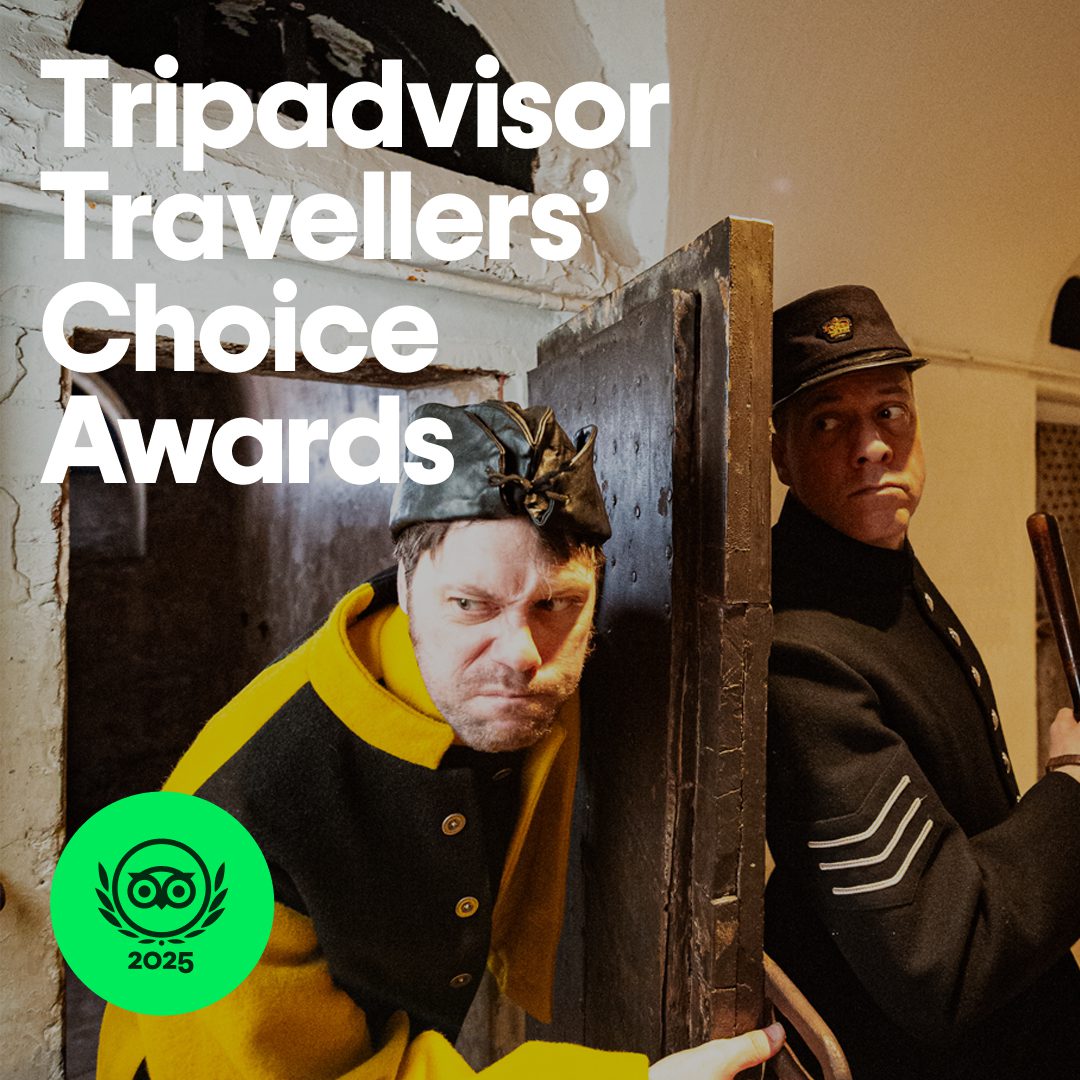
National Justice Museum and City of Caves recognised in the top 10% of attractions around the world
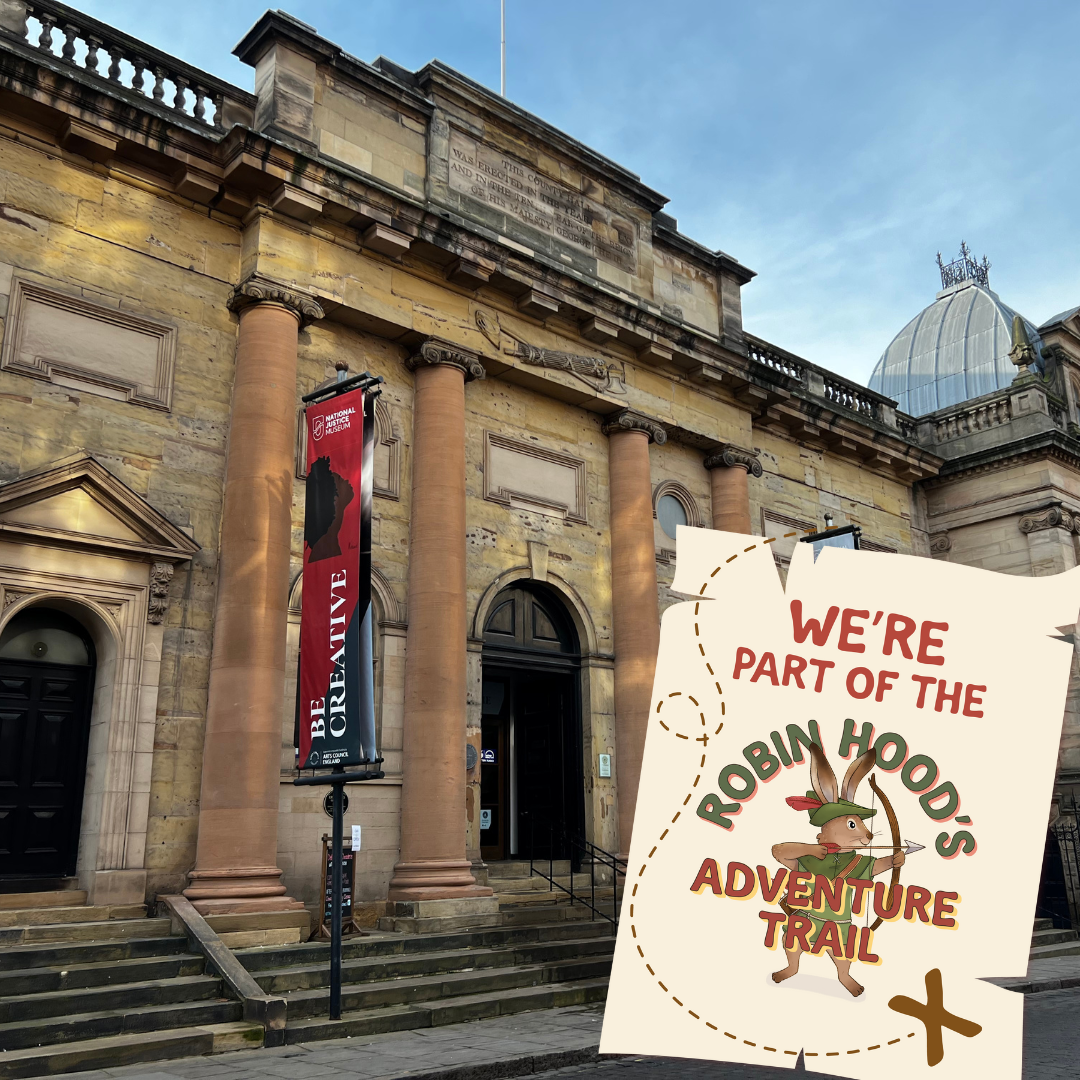
Find us on the Robin Hood Adventure Trail this summer
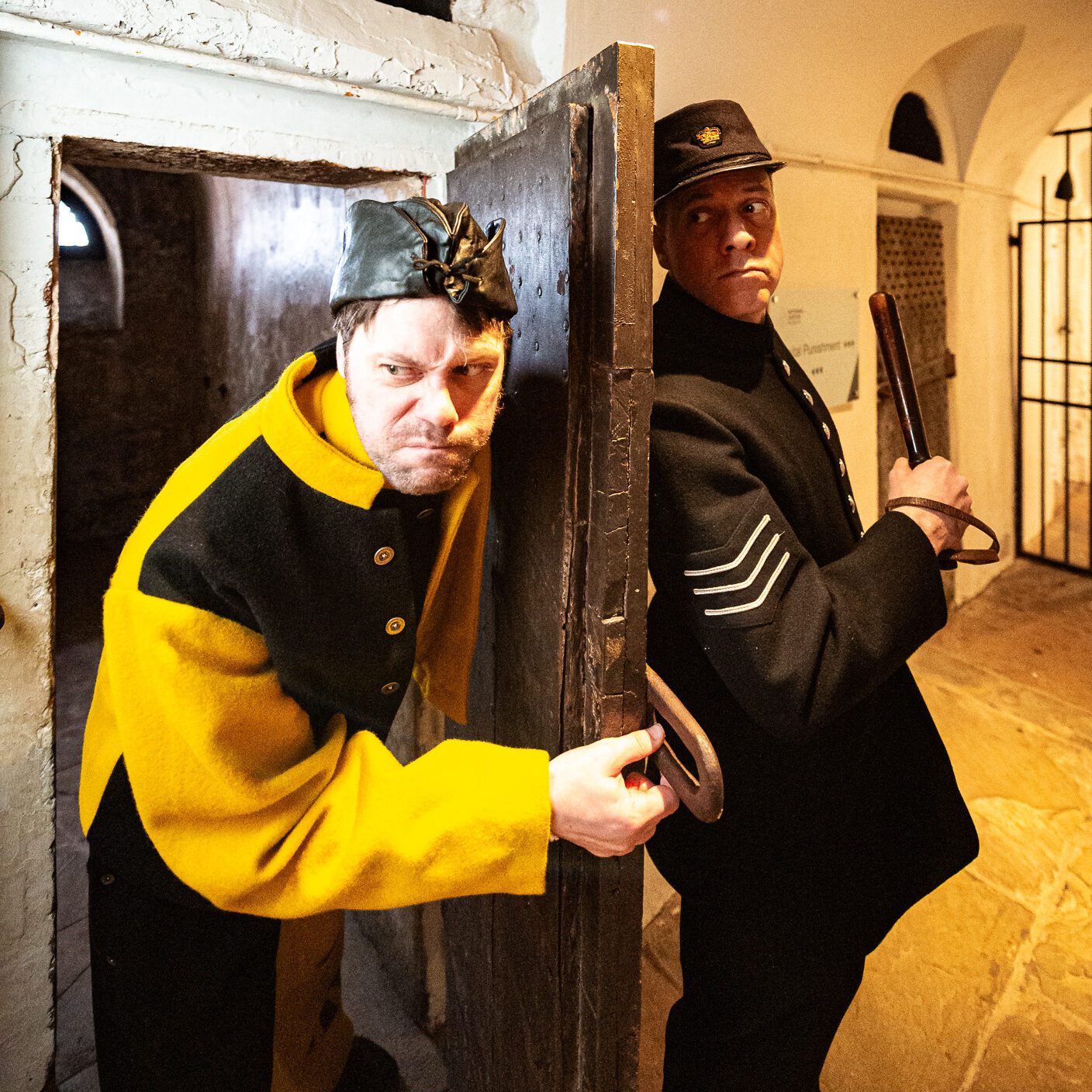
Enjoy a summer of discovery at the National Justice Museum
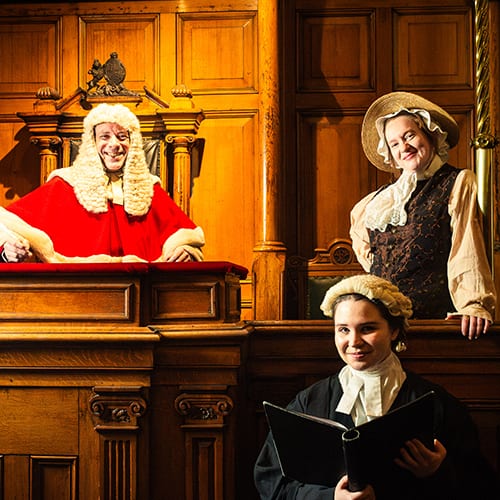
Discover a year of family entertainment and fascinating history at the National Justice Museum with our new Annual Pass!
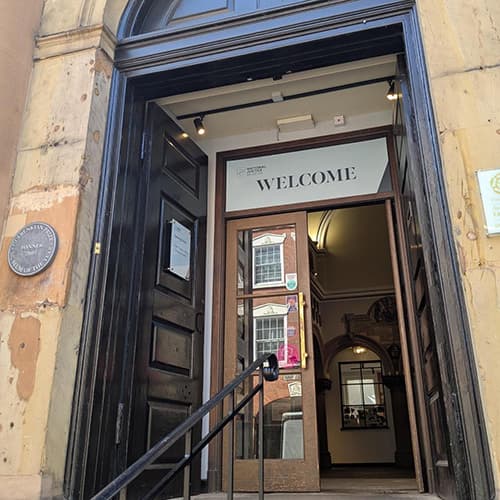
Everyone is welcome at the National Justice Museum
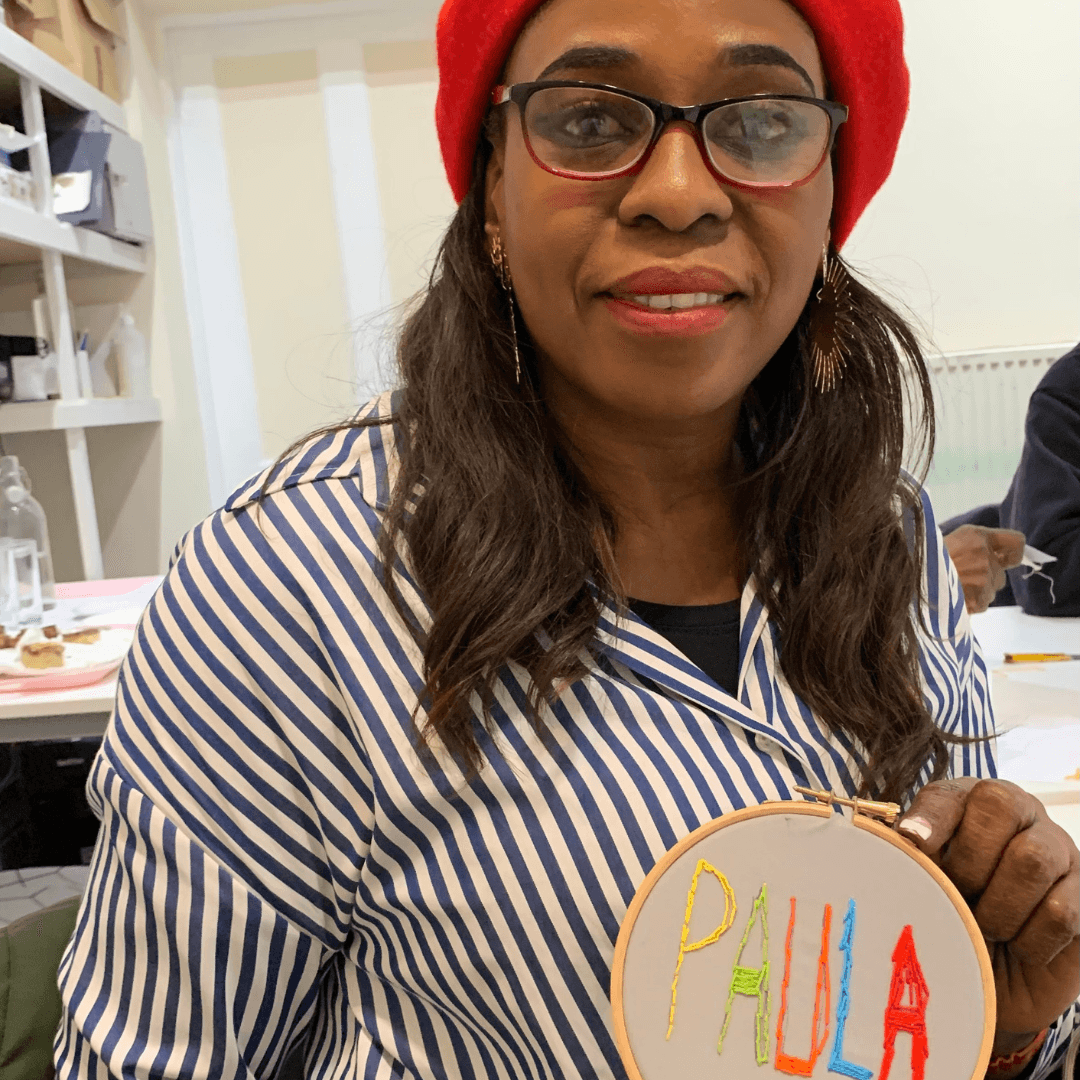
Interview with a volunteer - Paula
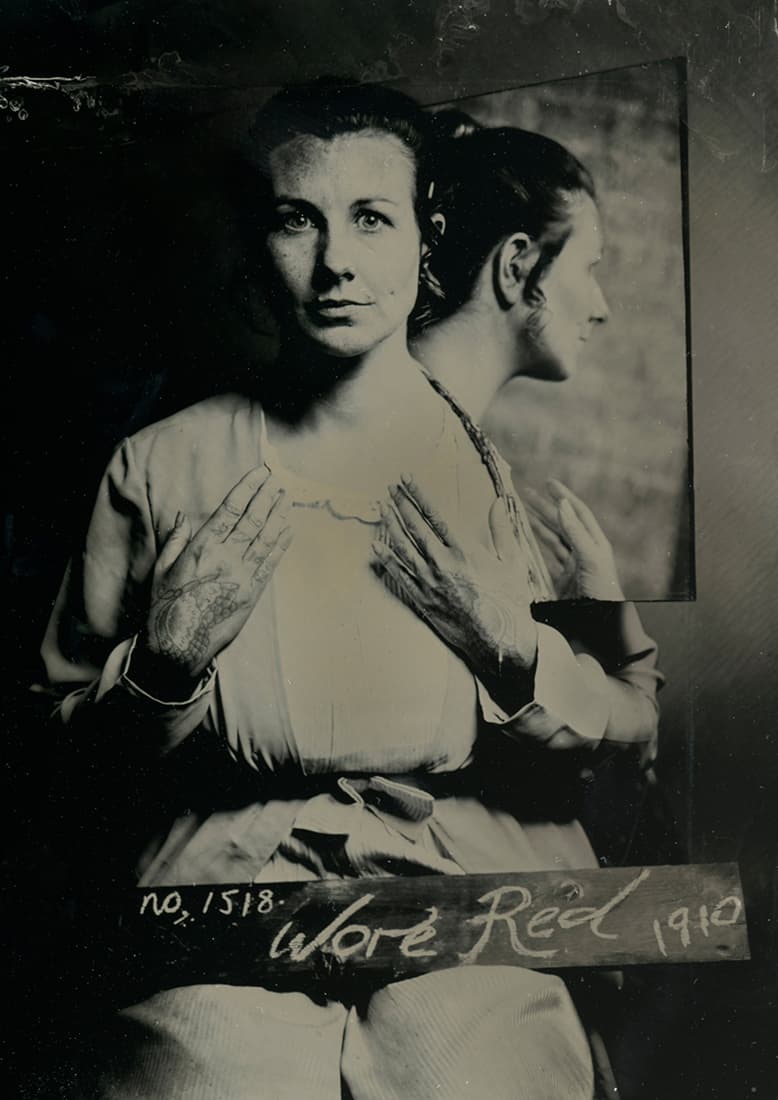
Asking For It, an award-winning exhibition challenging the culture of victim-blaming, opens at the National Justice Museum

National Justice Museum announce recipient of £1000 photography Creative Residency Prize
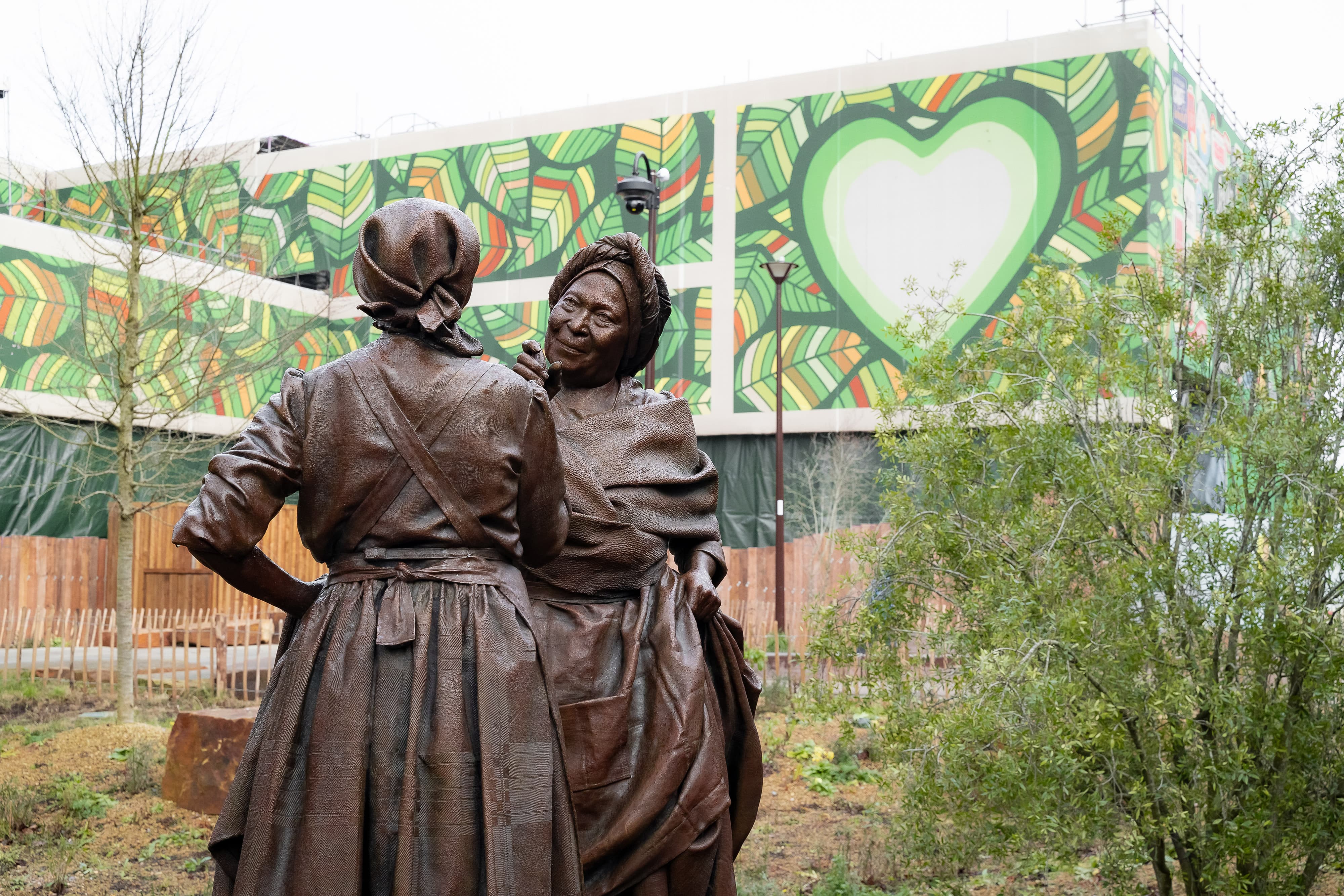
UK-first bronze sculpture makes history in Nottingham’s Broad Marsh Green Heart

The History of Borstals in England - Part 6 - Medical Care
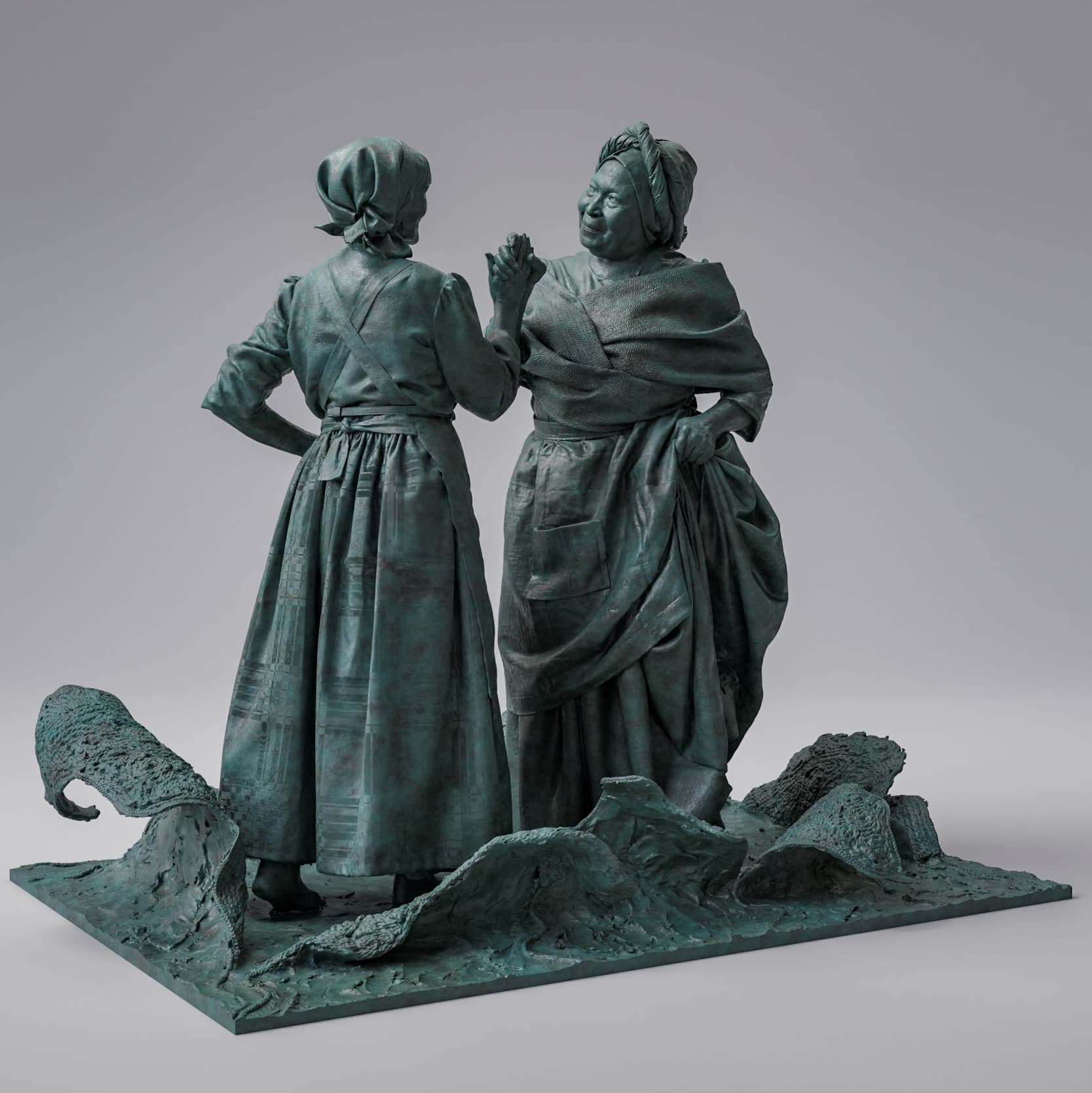
UK-first bronze sculpture for Nottingham’s Broad Marsh Green Heart confirmed for early 2025
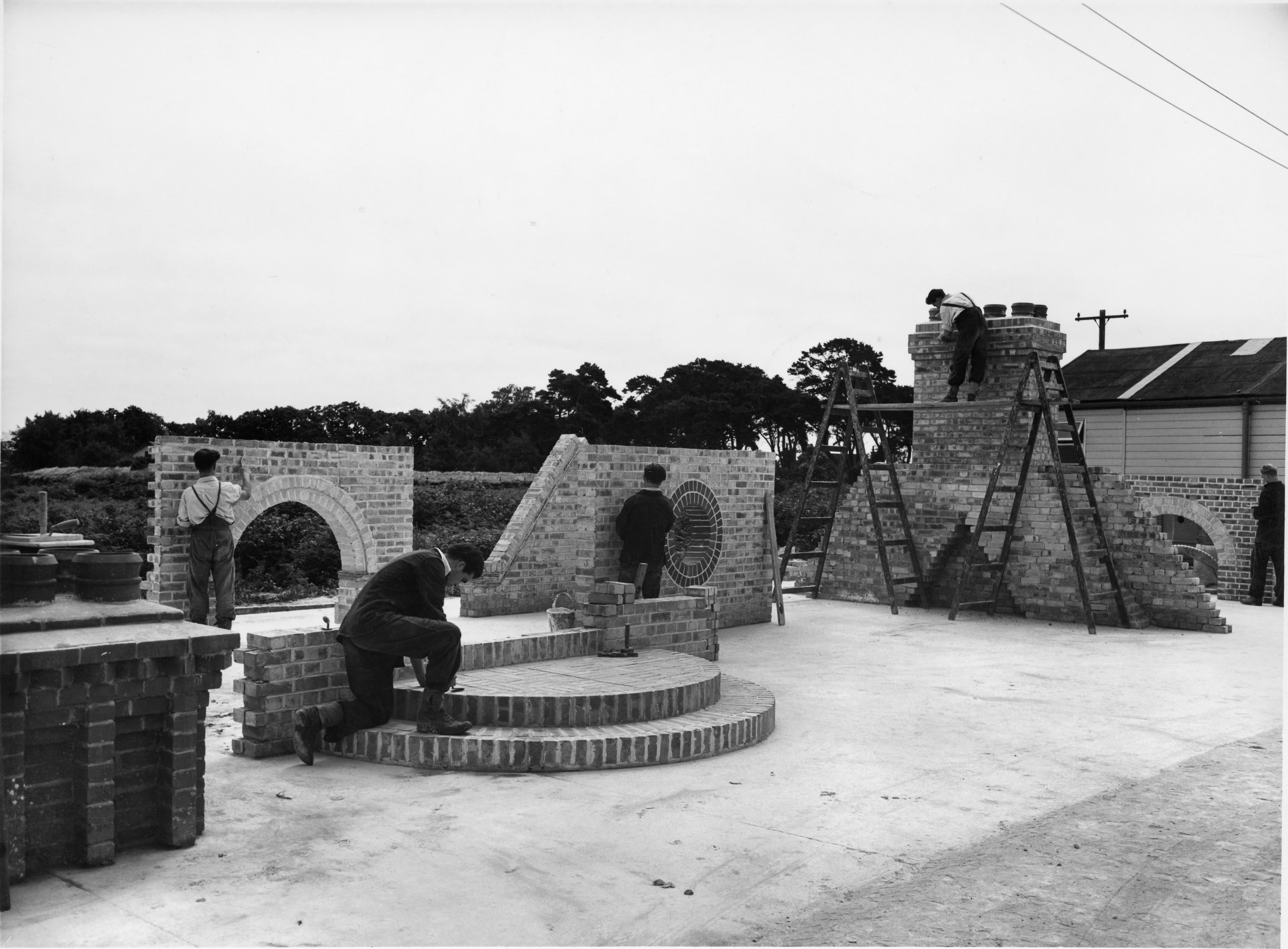
The History of Borstals in England - Part 5 - Education and Routine

The History of Borstals in England - Part 4 - Health
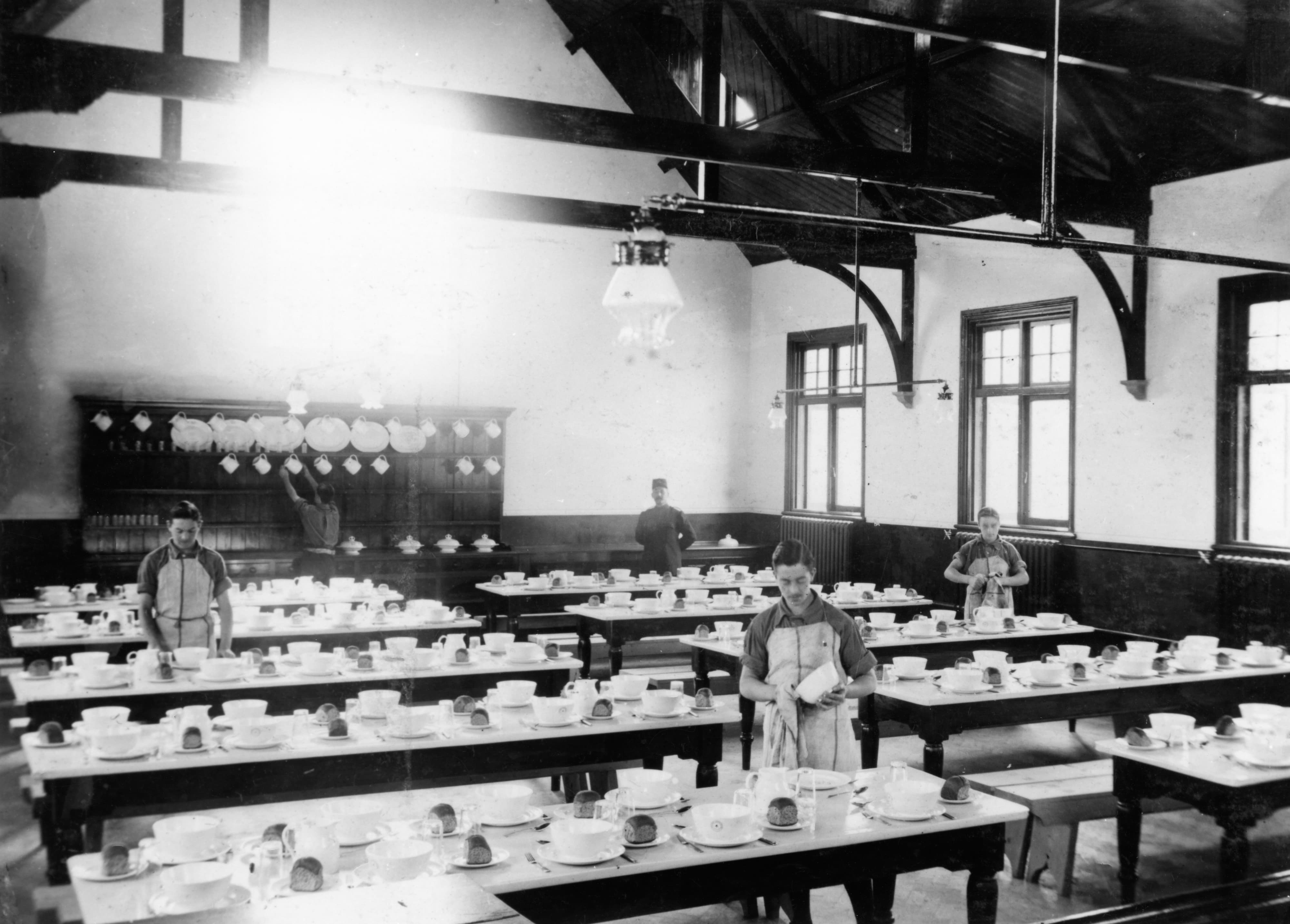
The History of Borstals in England - Part 3 - Food

Picture This: Hope - Blog by last year's residency winner, Francesca Hummler

The History of Borstals in England - Part 2 - Farming and Agriculture

The History of Borstals in England - Part 1 - Timeline

Find us on the Robin Hood Adventure Trail this summer
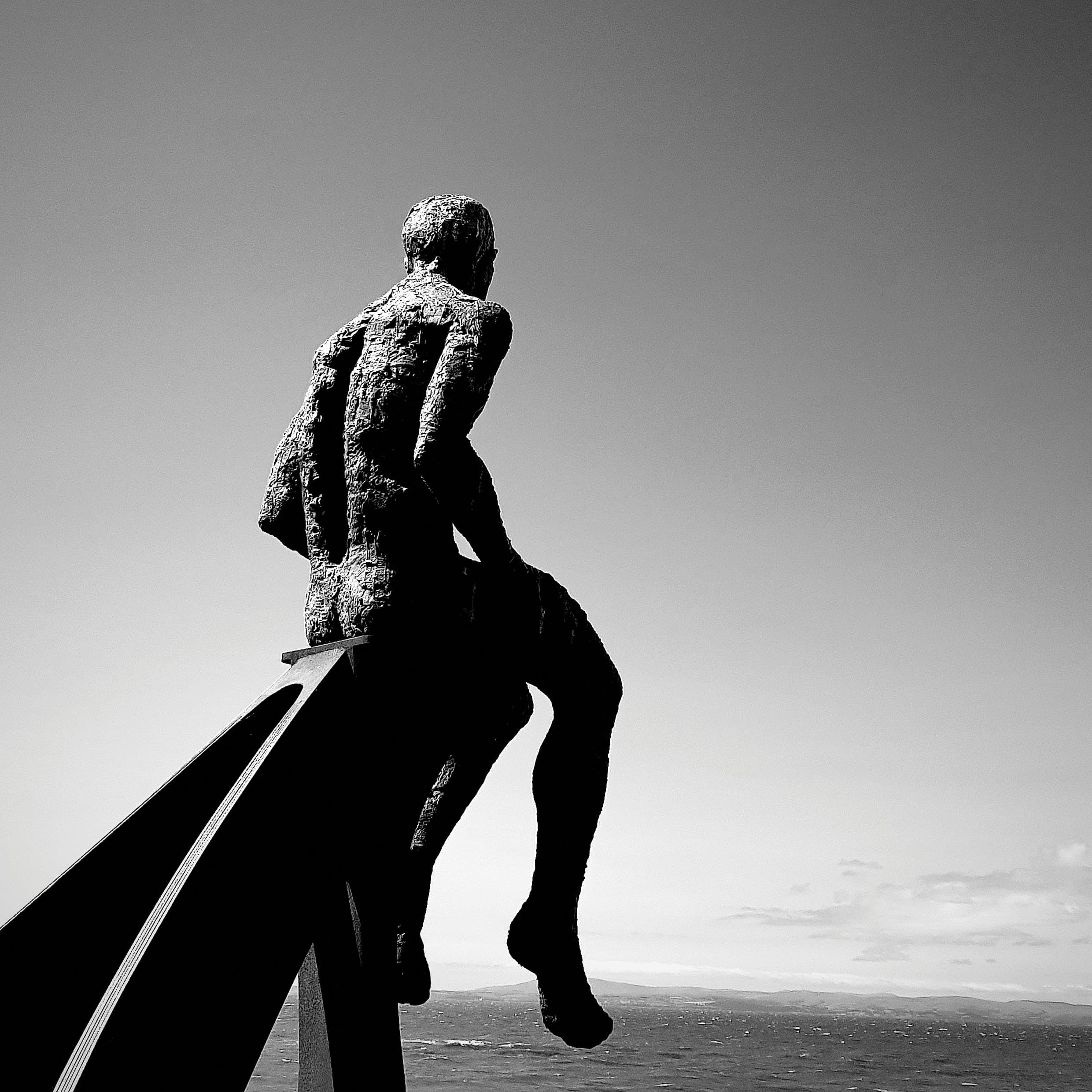
National Justice Museum announces judges for Picture This: Hope photography competition

National Justice Museum, Nottingham, appoints four new trustees to its board
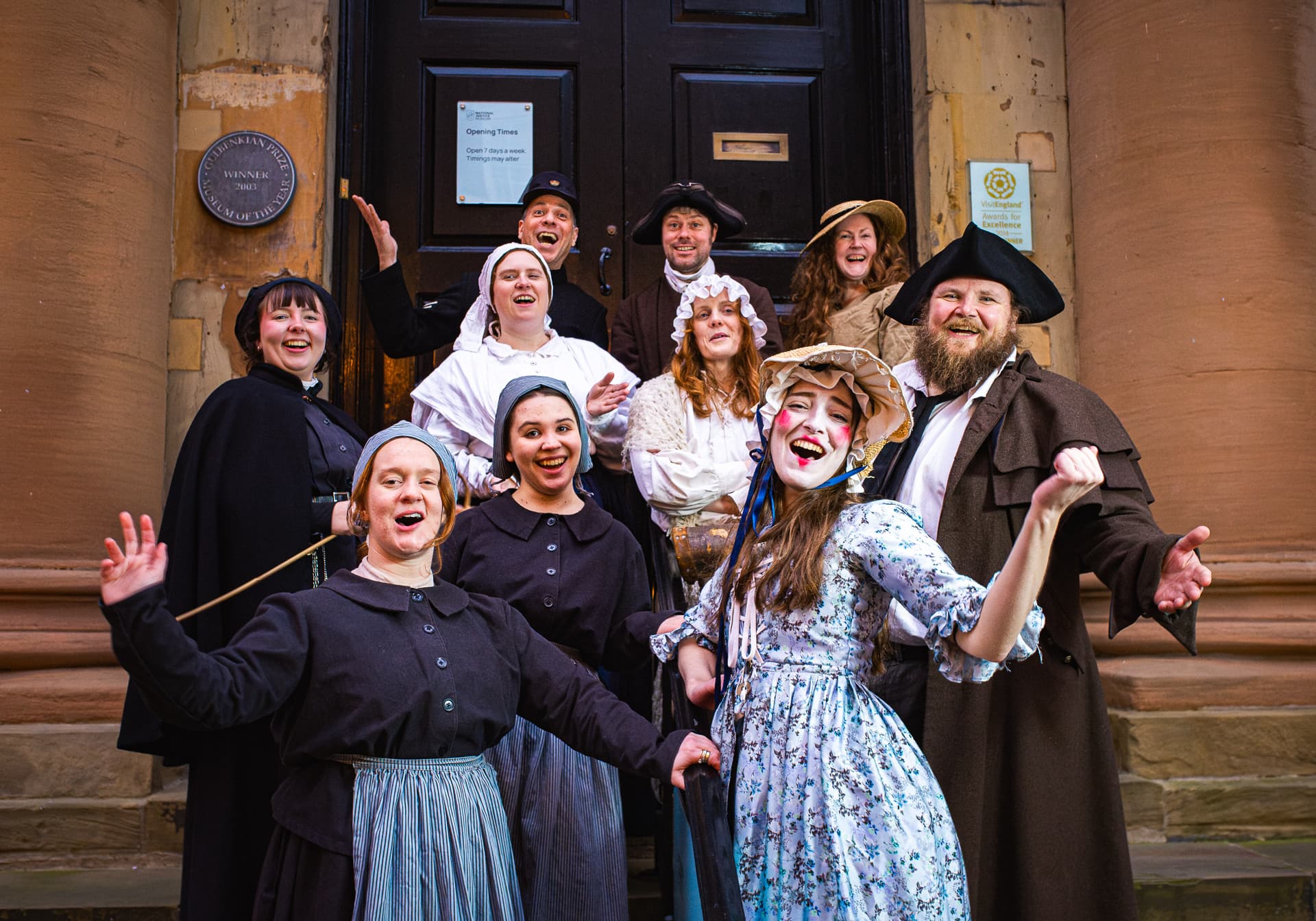
National Justice Museum and City of Caves Win Tripadvisor® Travellers’ Choice® Award 2024
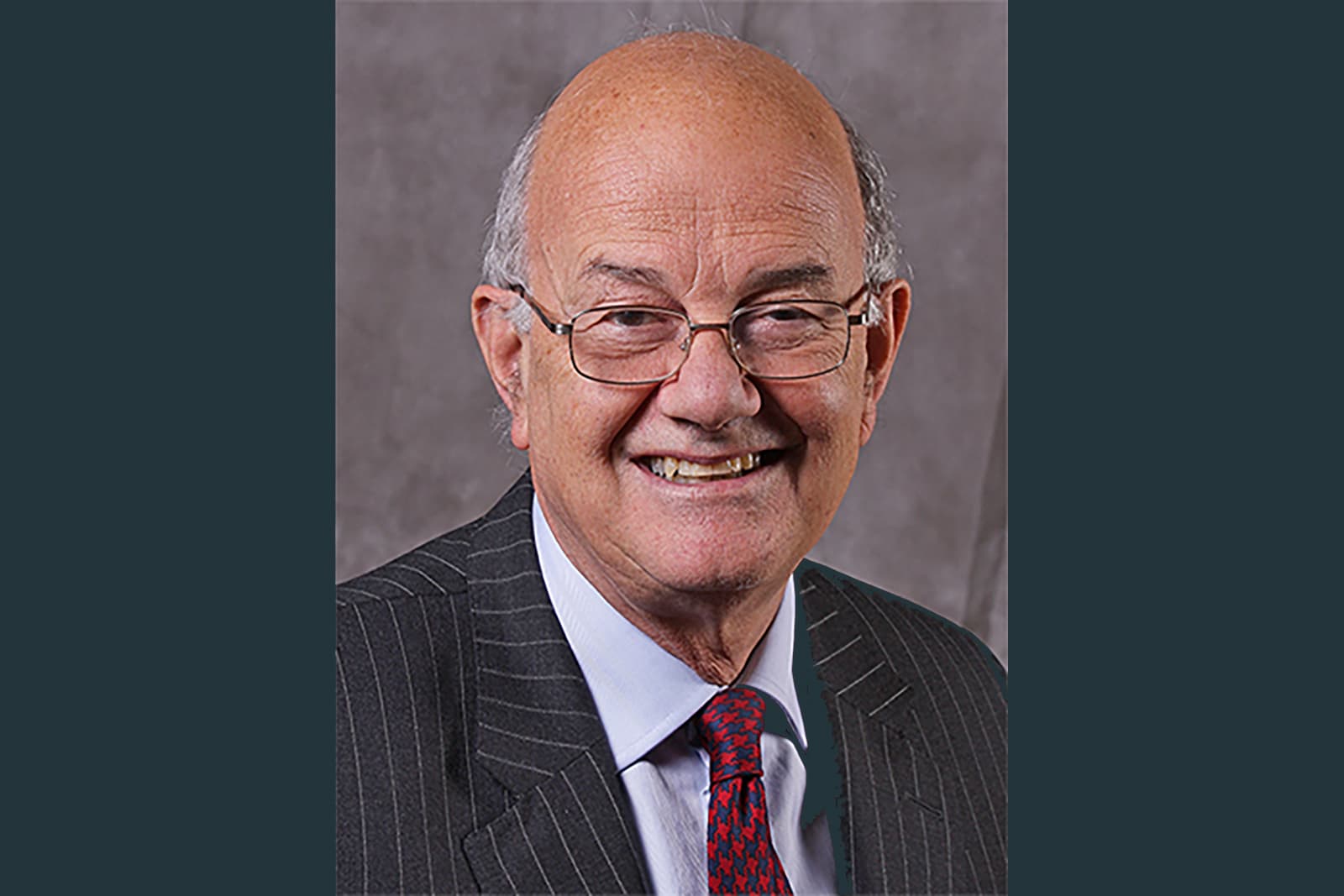
National Justice Museum celebrates the life of its patron Lord Judge
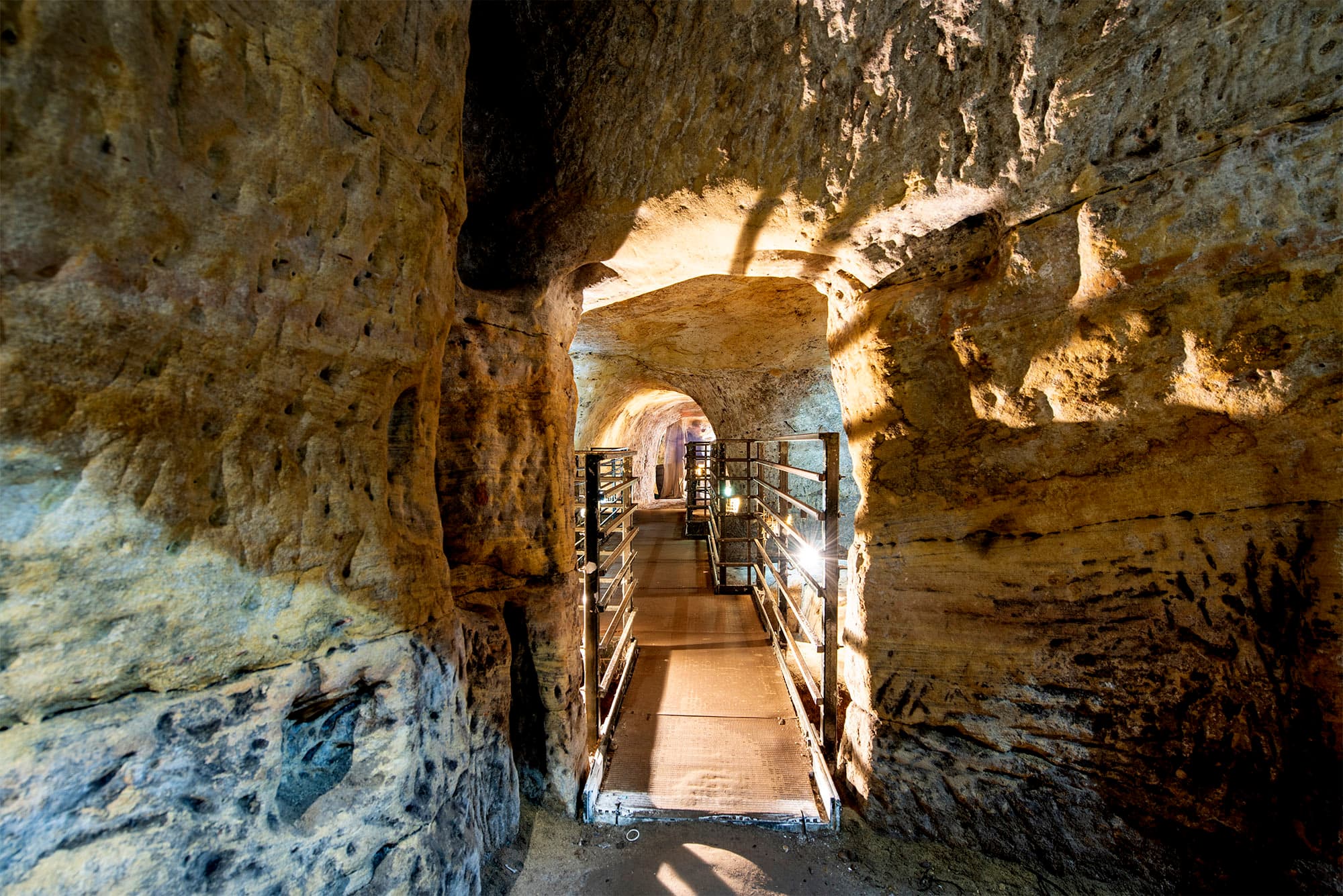
National Justice Museum and City of Caves Recognized as Tripadvisor® 2023 Travellers’ Choice® Award Winners
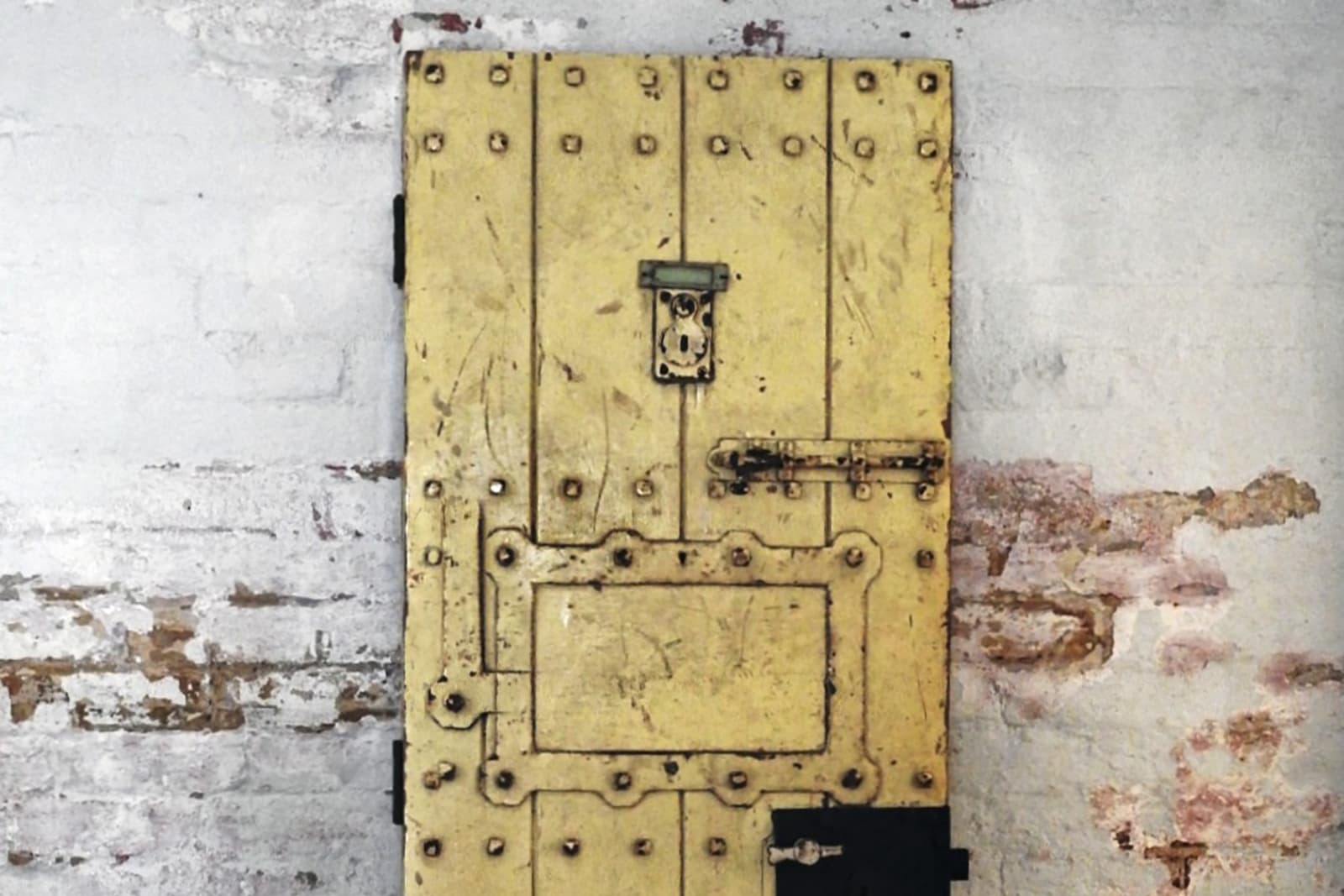
An iconic piece of LGBTQ+ history returns to public display at the National Justice Museum

National Justice Museum is awarded a £249,996 grant by The National Lottery Heritage Fund
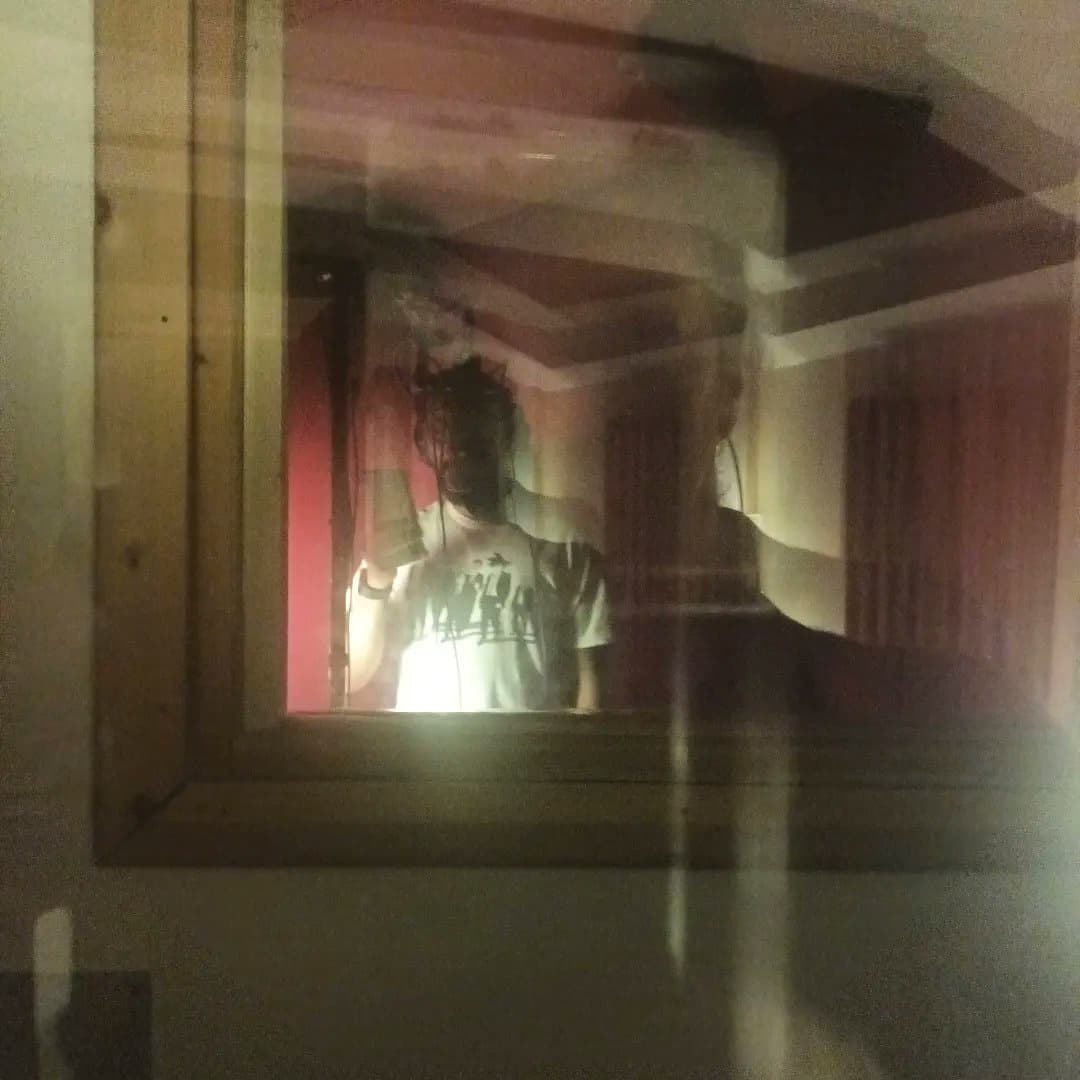
Immersive, site-specific performances come to the National Justice Museum for one day only
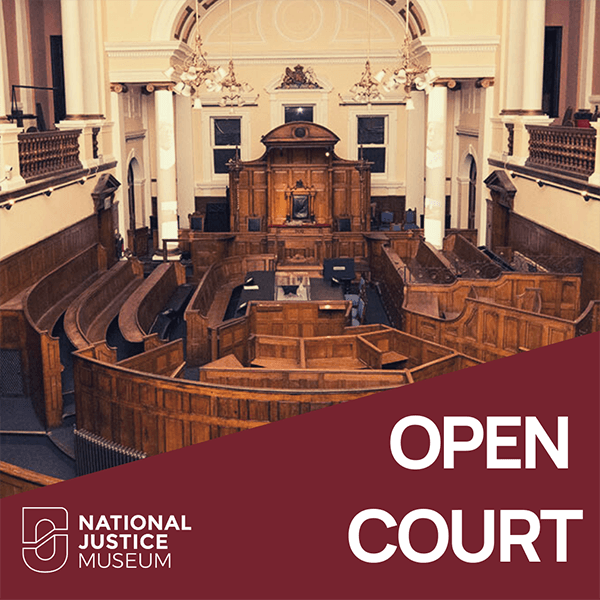
National Justice Museum's Open Court podcast back for a second season
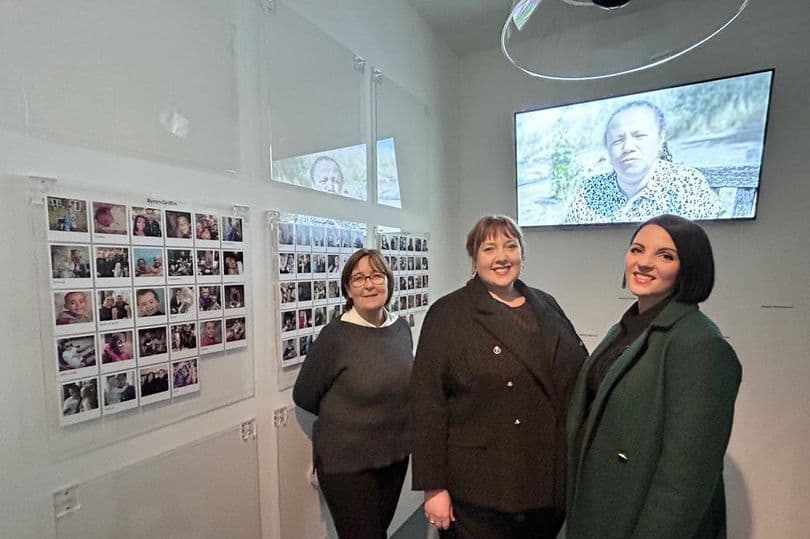
Family devastation brought closer to home in knife crime prevention workshops

National Justice Museum announce recipient of £1000 photography award

National Justice Museum recognised as one of England’s outstanding cultural organisations through Arts Council England’s National Portfolio
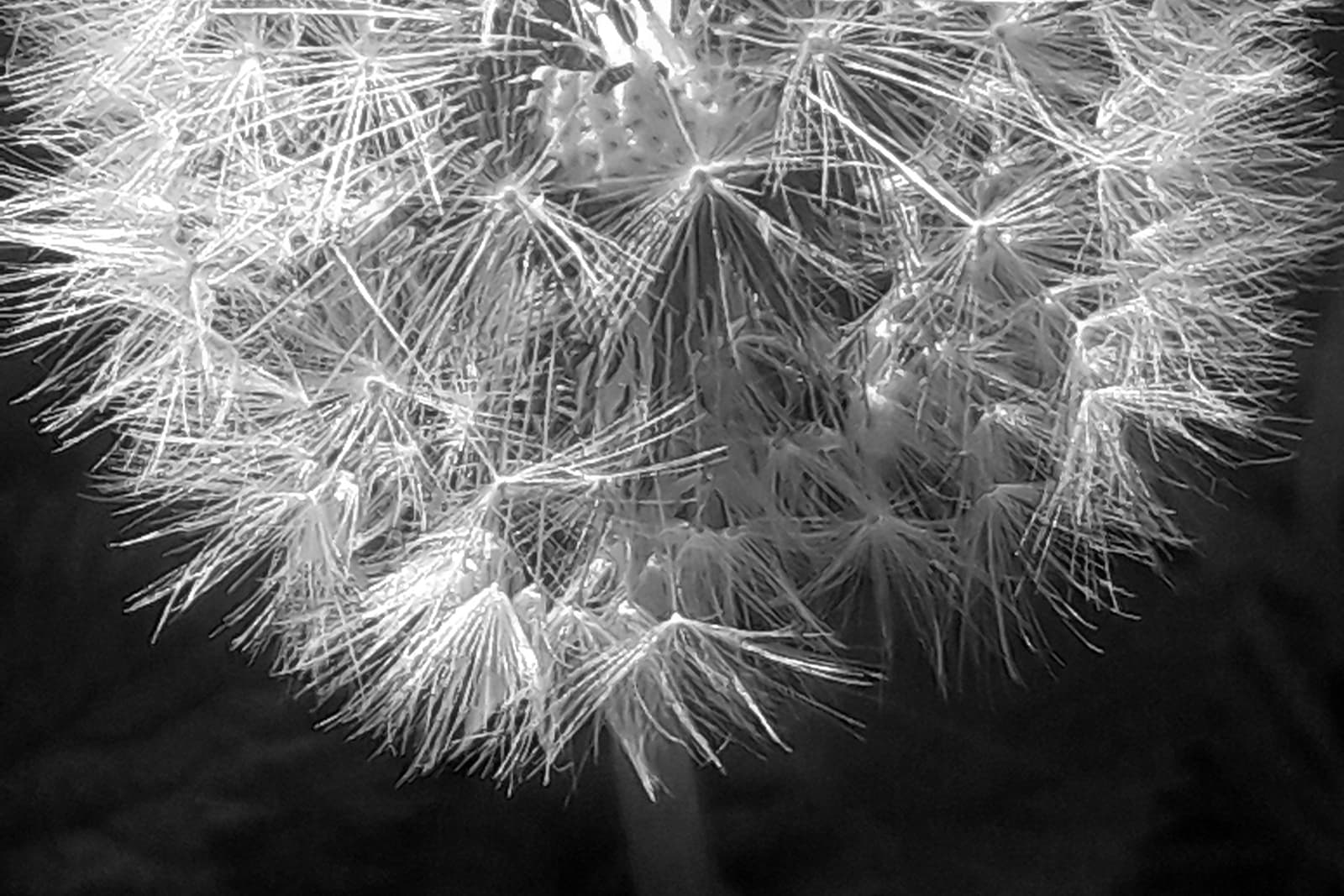
National Justice Museum’s new open-call photography exhibition, Freedom, to open in November

The National Justice Museum explores untold stories of Black presence

National Justice Museum opens call out for object donations from Black Legal Professionals
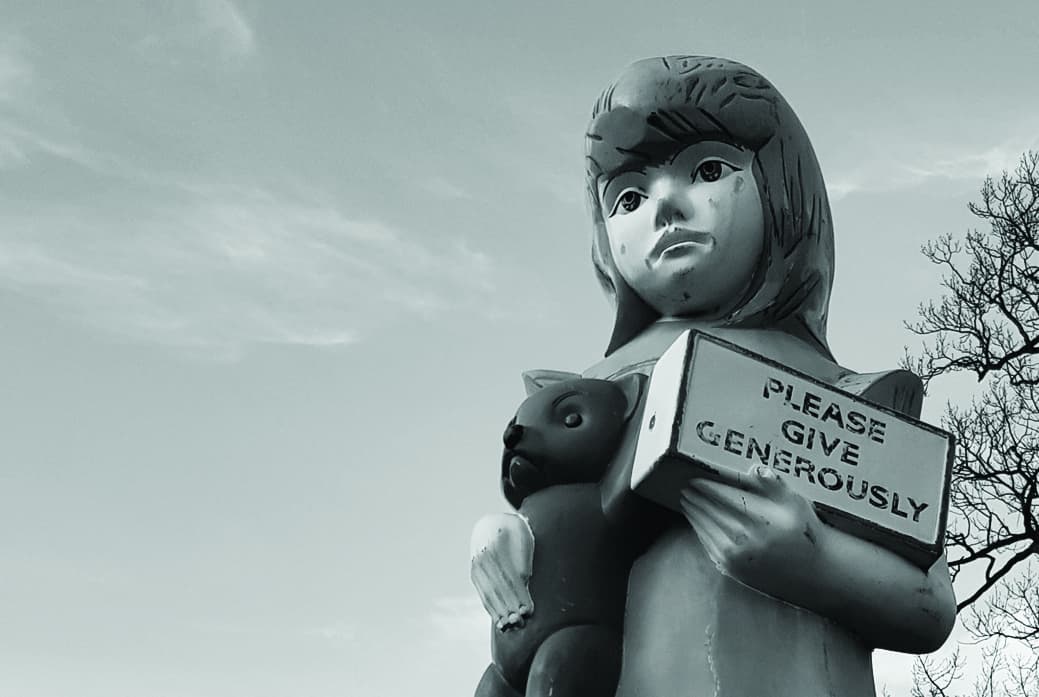
National Justice Museum announces judges for Freedom photography competition

National Justice Museum Wins 2022 Tripadvisor Travellers’ Choice Award

Rolls Building Art and Education Trust & The Technology and Construction Court Art Competition
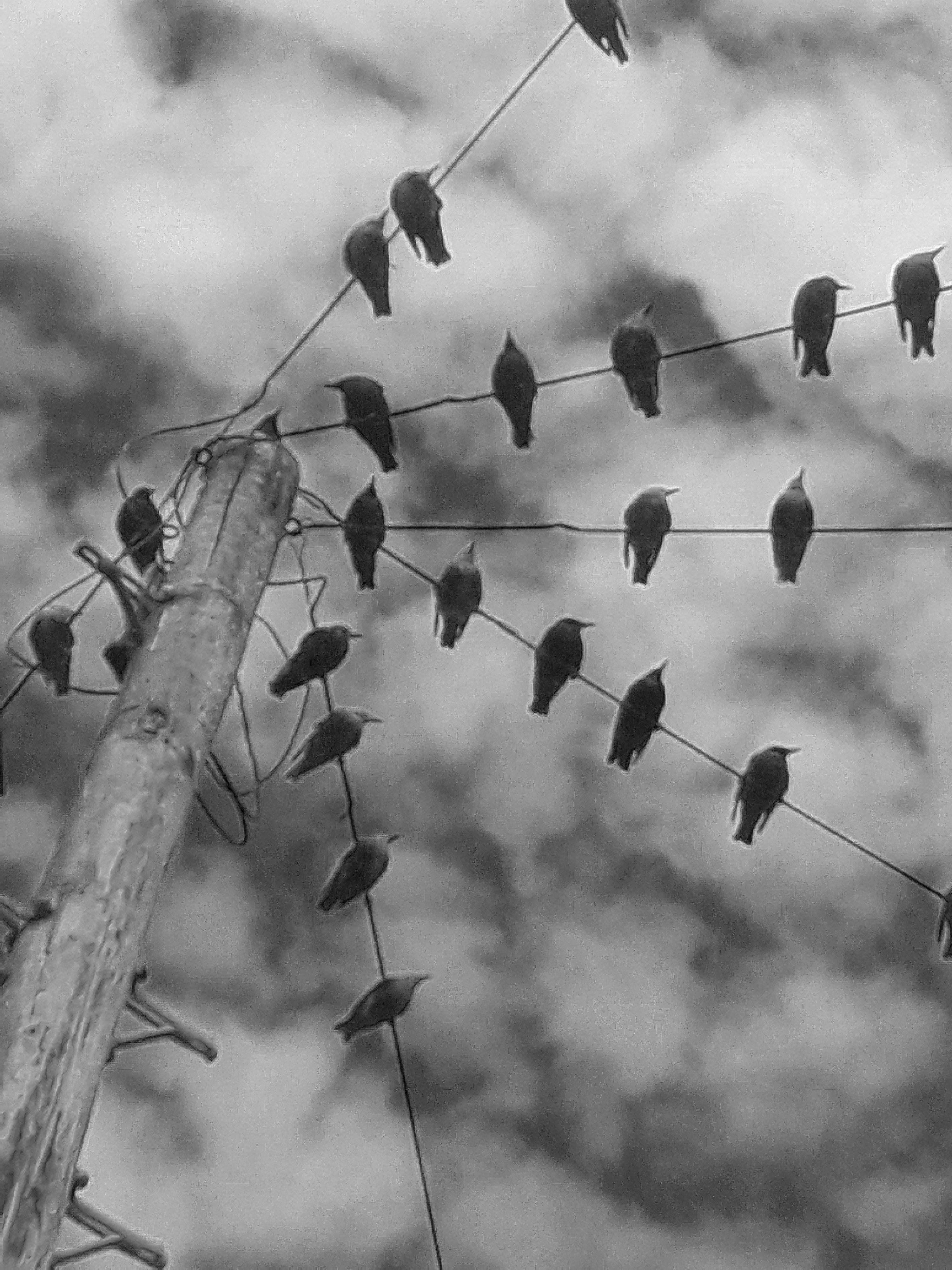
National Justice Museum opens submissions for photography exhibition with a £1,000 prize at stake
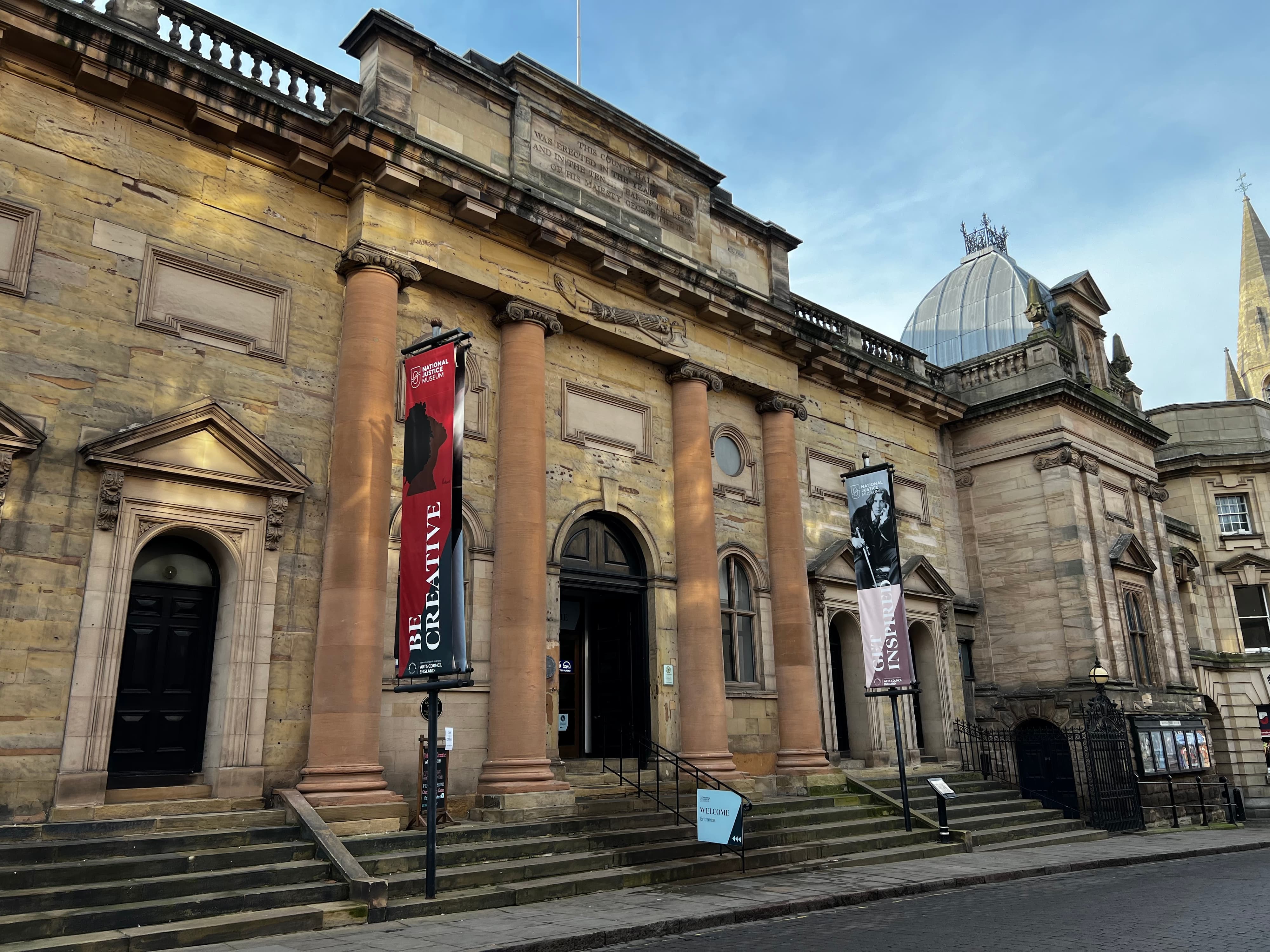
National Justice Museum to receive £362,900 in fund which helps safeguard nation's cultural heritage

The National Justice Museum publishes Letters of Constraint
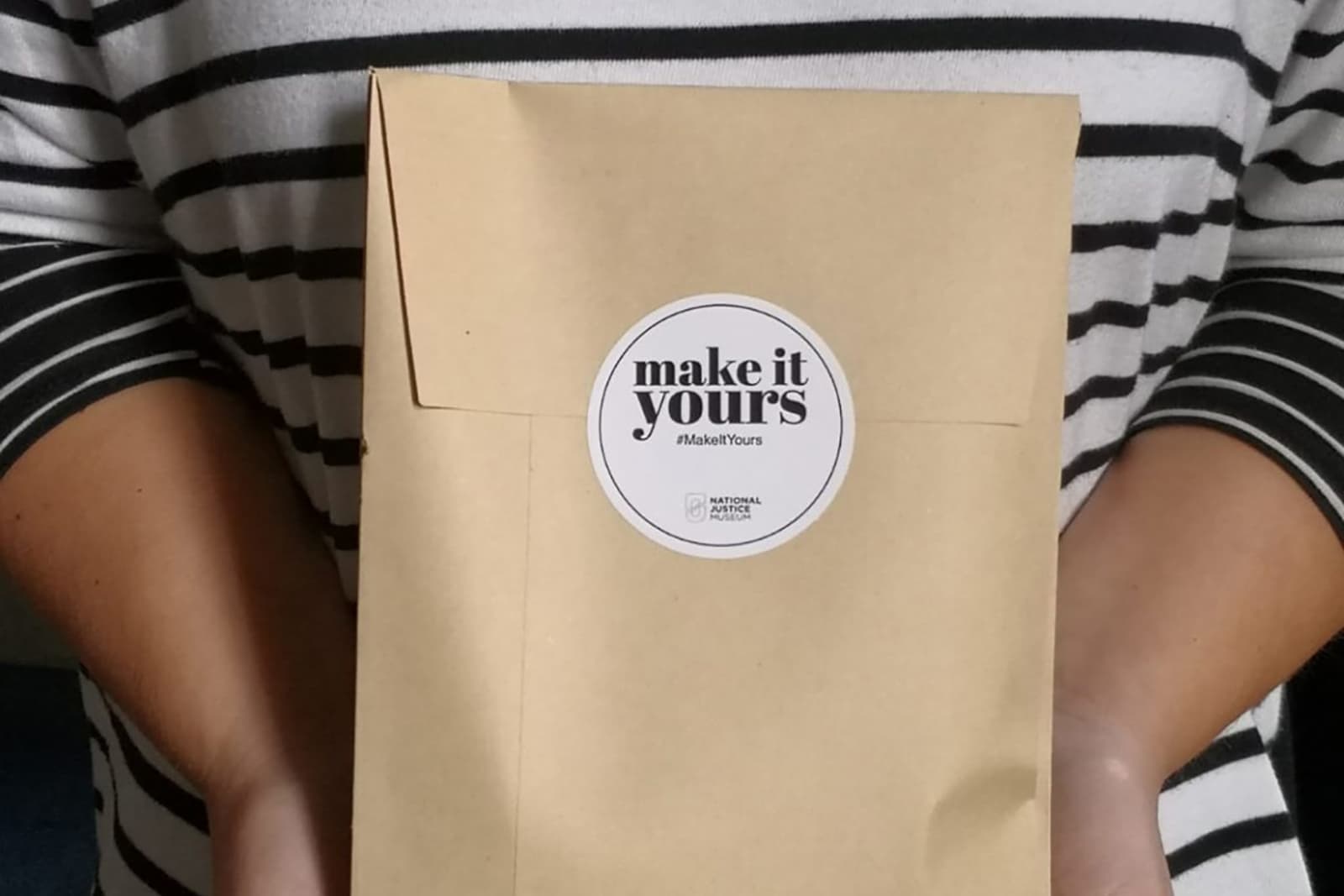
National Justice Museum wins Best Museums Change Lives Project at Museums Change Lives Awards 2021
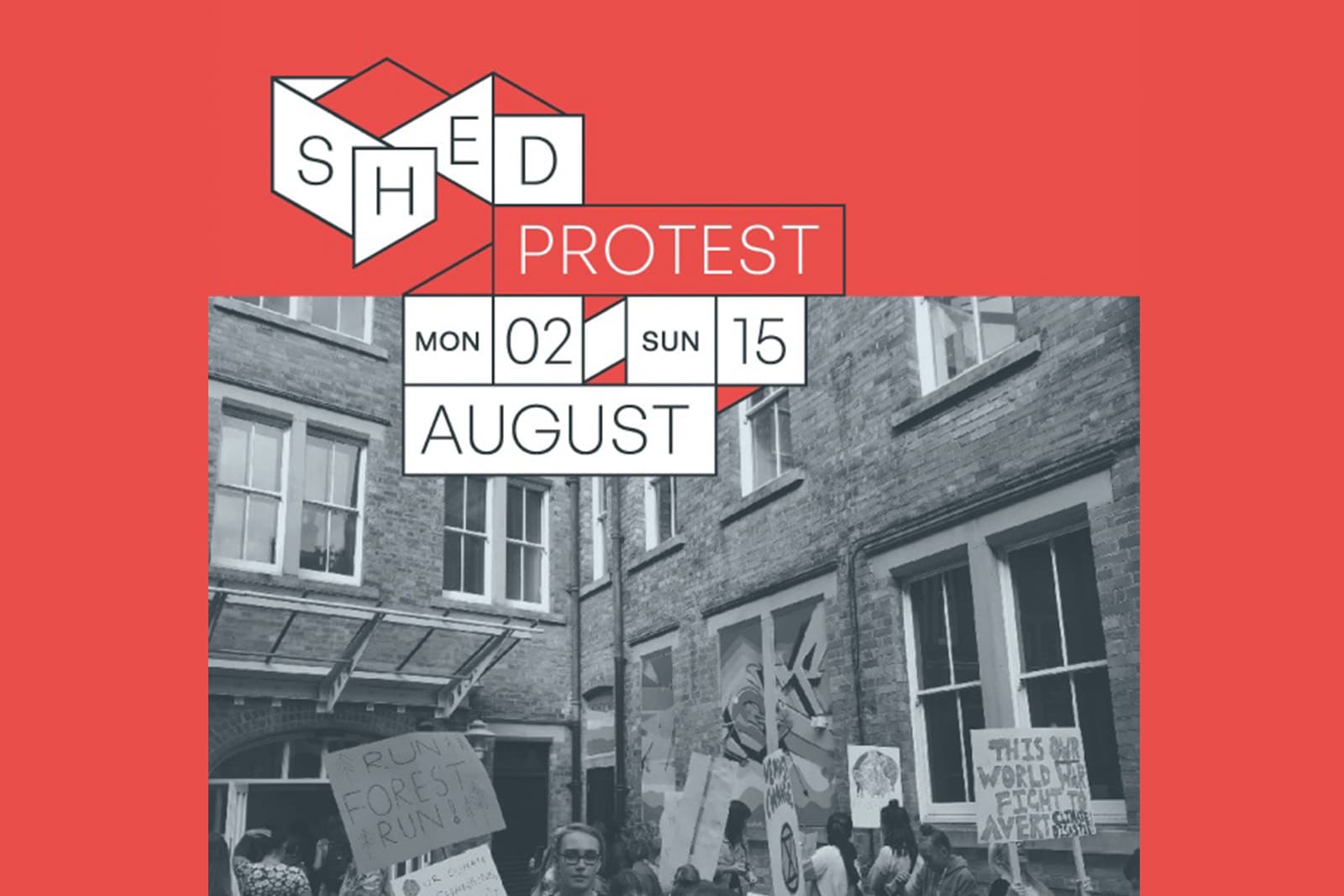
Welcome back S.H.E.D!

‘Freed Soul’ letters

Justice week 2021

Ghost stories with Claire

Autism and me
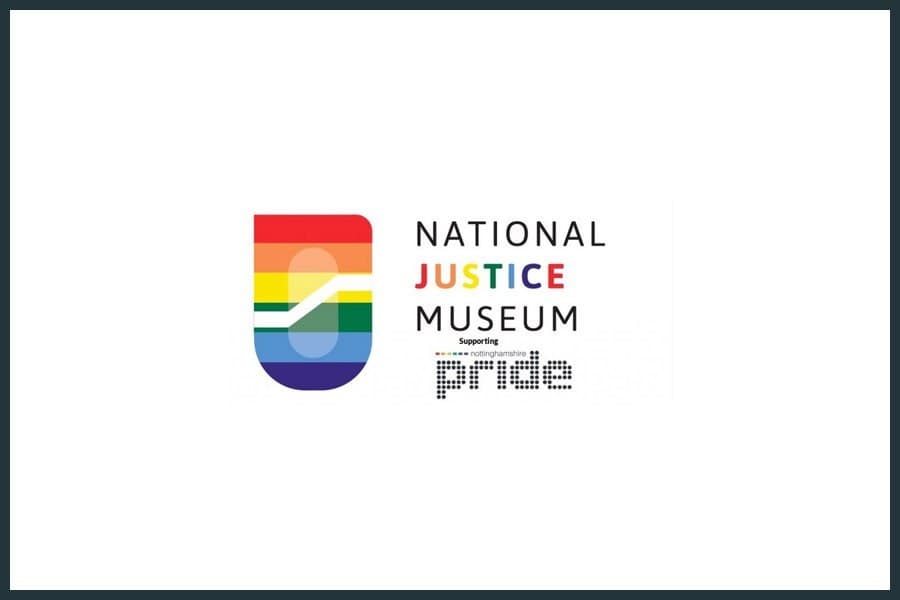
Staying proud

Ultimate travel list

The ‘Bloody Code’?
